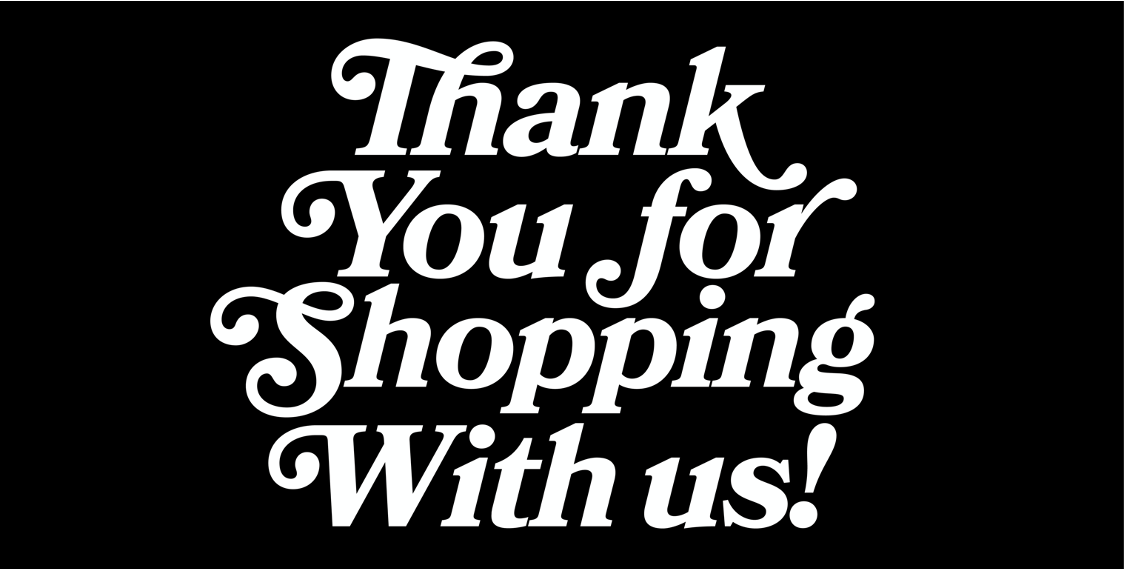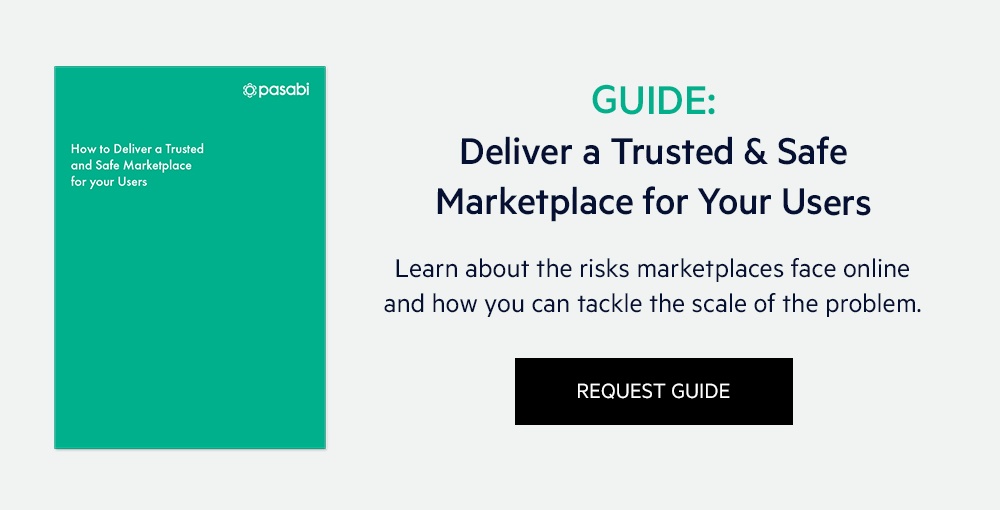“For e-commerce, the most important thing is trust.”
Jack Ma (Co-founder of Alibaba)
How likely are you to buy from a person selling cosmetics door-to-door? Would the likelihood of you making a purchase increase based on positive word of mouth from a neighbour? Or perhaps if the seller is someone you know? It’s a question of trust.
Our daily interactions and financial transactions run on a series of trust-based decisions. We trust that other motorists will drive with due care when on the road. We trust our children to be educated and kept safe in school. We trust retailers have robust payment systems in place when handling our transactions. We trust the reviews we read and products we buy online are authentic and legitimate. Should we?
Trust is fragile
Trust needs to be earned. It can be quickly lost, but slowly regained. Online shopping requires significant trust on the part of the consumer - from the authenticity of products and reviews, to secure payment handling and safe promised delivery.
According to figures from Trustpilot in 2020, almost 9 out of 10 consumers read reviews before making a purchase. A study carried out by BrightLocal in 2019, revealed that 92% of 18-34 year olds had read a fake review in the past year. This is a concerning figure when e-commerce relies so heavily on trusted online reviews. The prevalence of fake reviews and substandard and counterfeit products online erodes consumer trust and threatens online marketplaces.
Shift in responsibility
Recent legal changes, such as the Shop Safe Act in the US and the E-Commerce Law in China, demand marketplaces to be more proactive in fighting fakes on their platforms.
The Shop Safe Act, passed in March 2020 in the US, aims to combat counterfeit goods sold online. It requires marketplaces to more closely police products on their platforms for fakes and counterfeits. It calls for marketplaces to verify the seller, their place of business and contact information. It necessitates third parties to verify the authenticity of their goods and stipulates that marketplaces prove they have taken reasonable steps to prevent infringement.
This is a welcome move for cleaning up the consumer experience online, as counterfeit trade stands at 3.3% of world trade figures, but it creates a sizable task for e-commerce platforms. Holding marketplaces accountable for counterfeits listed on their sites highlights the need for a comprehensive approach to ensure consumers and brands are protected and to stop counterfeiters from cashing in on marketplaces’ hard-earned reputations.
On 1st January 2019, China implemented its first ever comprehensive E-Commerce Law (ECL). The law has a very broad scope being applicable to all e-commerce activities taking place in China. It defines e-commerce as business activities of sales of goods or provision of services through the internet and other information networks.
The ECL requires e-commerce businesses to complete market entity registration documentation to receive a Chinese business license. E-commerce platforms (such as Alibaba and JD.COM), e-commerce platform users (such as sellers with Tmall shops) and other e-commerce operators who conduct business through self-built websites or other services (such as WeChat shops) are all covered by the law.
Under the ECL, both the counterfeiters and e-commerce operators who fail to take necessary measures to prevent and stop sellers in violation of intellectual property rights are liable. In serious cases of IP infringement, sellers can be fined up to RMB 2 million (US$292,000). This means that marketplaces in China have to be more diligent in policing the content on their platforms in order to comply or risk facing hefty fines.
In the UK, however, more needs to be done to protect consumers from substandard, dangerous counterfeits. BBC news spoke with leading safety charity Electrical Safety First in October 2020 regarding the volume of unsafe electrical goods for sale on popular marketplaces. The charity’s investigation uncovered 70 listings on visually non-compliant electrical products for sale. The likelihood being that thousands of units would already have been sold. Product images used to advertise them were analysed and deemed to be so obviously substandard that they were illegal for sale to UK customers.
The UK’s electrical safety experts said more needed to be done to protect consumers, drafting a proposed change in the law:
- Online marketplaces should be bound by a clear legal obligation preventing the sale of substandard products
- Responsibility should not lie entirely with the third-party seller
- Consumers should be alerted when it’s found they have purchased a substandard product
Chief executive of Electrical Safety First, Lesley Rudd, stated:
"Quite rightly, our High Street retailers are bound by legal responsibilities and it is wrong that online marketplaces can operate outside of this framework. It is time to even the playing field to finally tackle the scourge of substandard goods we continue to find on sites. We urge the government to adopt our Bill in order to protect millions of UK consumers and to hold online marketplaces to account."
Scale and scope of protection needed
Vetting counterfeit listings on Amazon, for example, which has nearly 600 million SKUs listed, is an enormous task. The challenge is magnified when more than half of listings on the tech giant’s site are from third-party sellers (Digital Commerce 360).
The US Department of Homeland Security released a document at the start of 2020 calling out third-party marketplaces as ‘facilitating’ counterfeiters. Setting up a virtual storefront on Amazon is a quick and easy process. There is little to no barrier to entry making it possible for anyone to list products and start selling with a global reach. Products offered may look and sound legitimate, but often consumers can be conned by fakes.
Fraudulent sellers have been known to use photos of legitimate products for their listings but ship fakes to the unsuspecting consumer. The product listing description is often lifted from genuine brands’ sites too. Counterfeiters can even buy fake online reviews to boost their ratings, underhandedly making their products more attractive to unwitting consumers. They can also directly attack legitimate brands by purchasing negative fake reviews to appear on competitors’ sites. The result is consumers are duped into buying fake products, legitimate sellers’ reputations and revenues are badly hit and marketplaces are flooded with fake products, fake reviews and, ultimately, unhappy customers.
The Government Accountability Office, a US government agency providing auditing and investigative services for Congress, discovered that 20 out of 47 items purchased in a sample test from third-party sellers on popular marketplaces were counterfeit, according to Digital Commerce 360. This equates to approximately 43% of items sampled.
Returning to the example of the door-to-door seller, the assurances that go along with buying from someone you know, or someone you know you can trust, are worth their credible weight in gold.
The role of marketplaces
Historically, marketplaces have successfully avoided liability by claiming they are not selling the infringing goods and are merely acting as a platform to facilitate merchants selling to consumers. Brands selling on Amazon, however, suggest a different experience. The tech giant has hundreds of its own label brands, its search algorithms give preference to sellers offering Prime-eligible products (generally requiring sellers to use the Fulfilment by Amazon service) and it also controls which sellers get the Buy Box (‘add to cart’ button). So, the platform appears to do more than facilitate transactions between buyers and sellers.
The passing of the Shop Safe Act in the US marks the beginning of a shift in responsibility towards marketplaces needing to police their sites more closely and take appropriate action to stop illegal sellers from sullying their name and harming consumers.
Kelly Ennis, director of marketplace strategy and analytics for Jam Paper, an online office supplies retailer, welcomes the Shop Safe Act. She says the current process to remove counterfeiters from some marketplaces is slow and resource-heavy.
Often sellers need to prove their product has been counterfeited and made available for sale. This requires the seller to make a purchase from an alleged counterfeiter, report the violation with evidence to the platform and wait for action to be taken. In proven cases, marketplaces close sellers’ accounts. This can, however, take up to 14 days, during which time more damage is done to legitimate sellers’ businesses through diminished sales and loss of trust, and to consumers who potentially still unknowingly purchase fake products.
Working in this ad hoc, resource-intensive way, the marketplace has limited ability to effectively eliminate fakes from its site at scale. It cannot put the offender in jail or even stop them from creating a new virtual storefront under a new name the very next day. It ultimately doesn’t get to the root of the problem - stopping the counterfeiter at source.
Amazon has updated its marketplace Brand Registry feature whereby sellers can list their trademarks, including logos, to allow Amazon to remove listings where sellers are found to be selling fakes. Copyright and patent owners can also submit a notice of infringement to the marketplace outlining the allegedly infringing goods available for sale. Where there’s been a proven breach of trademark or copyright infringement, Amazon will remove the seller’s products and the infringer could potentially be suspended or banned from the site. However, without legal intervention or hefty penalties, the counterfeiter will not stop looking for other means of trading their goods.
Providing your customers with an authentic experience
In order to eliminate fake goods and reviews from marketplaces and ensure consumer trust, a total brand protection approach is essential. From uncovering fake reviews online to identifying counterfeit products, marketplaces need to be proactive in providing sellers and customers with an authentic experience - and they shouldn’t wait to be legally enforced to do so. This translates into genuine reviews of safe products which will lead to sustained and mutual trust in brands and marketplaces, providing the best possible user experience.
At Pasabi, we have developed our own online brand protection platform using bespoke AI technology working in collaboration with some of the world’s biggest brands. Using the latest augmented intelligence techniques, Pasabi builds a picture of the true scale of the counterfeit problem - from products to reviews. Augmented Intelligence refers to the effective use of information technology to complement human intelligence. In particular, analysing large data sets and finding patterns and correlations that would either go unnoticed to human analysts, or would take a very long time to spot. It helps people to become faster and smarter at tasks they’re performing.
Our technology identifies offenders who are abusing your brand, products and hashtags online. We surface the connections between individuals to uncover groups acting together, creating a ‘watchlist’,allowing you to focus on the worst offenders. And build the evidence you need to remove ‘bad actors’ from social channels, marketplaces and e-commerce sites. Our platform also supports your legal team’s efforts to instigate takedowns and to prosecute offenders on the ground.
In summary, Pasabi’s technology empowers teams to take action at scale. It augments and supplements their efforts, giving them the insights they need and the ability to direct resources where their time is best spent.
The result is a more trusted, safer consumer experience, reducing the risk of buying substandard or dangerous counterfeits, and satisfied sellers knowing marketplaces are proactively helping in the fight against fakes.


